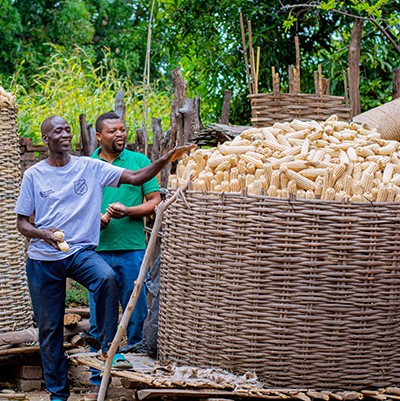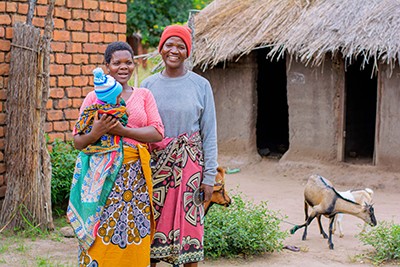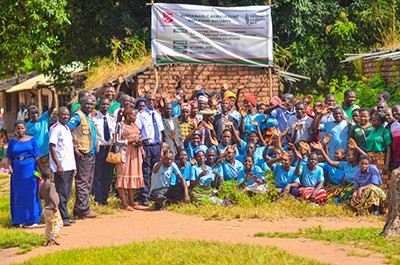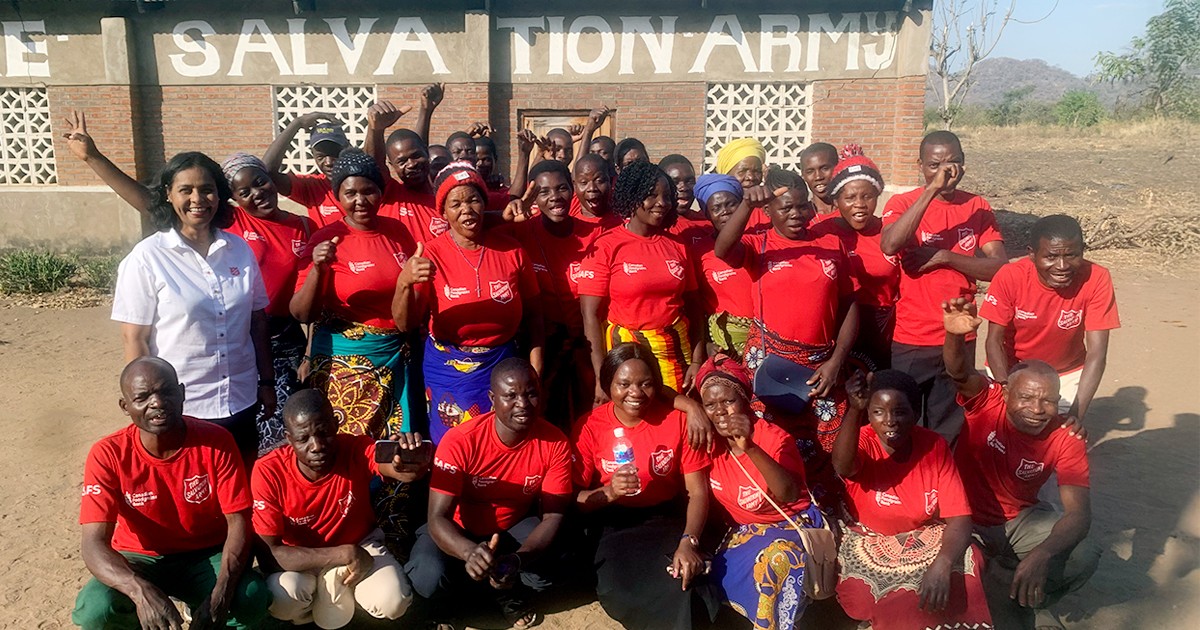Food is a fundamental human right, yet an estimated 733 million people go hungry every day—and nearly half of all child deaths are linked to malnutrition. Hunger is especially severe in Africa, where one in five people faces food insecurity daily.
In Malawi, where a significant portion of the population experiences economic hardship, nearly 70 percent of the population live on less than $2.15 a day, and most families depend on small-scale farming plots smaller than a hectare. Droughts, soil degradation, crop disease and lack of access to improved farming practices have long left many vulnerable to hunger and poverty.
In response, The Salvation Army, in partnership with Canadian Foodgrains Bank (CFGB), is implementing a three-year sustainable agriculture and food security (SAFS) project in Malawi’s Mangochi District. With a total budget of $1.2 million (supported by CFGB’s matching support), the project is helping more than 500 smallholder farmers gain practical training in conservation agriculture. These climate-smart techniques enhance soil fertility, increase yields, conserve water and help farmers adapt to climate challenges. The project also integrates livestock management, village savings and loans, and the training of 30 lead farmers to support and promote conservation agriculture within their communities.

A Reason to Smile
For farmers such as Edward Mwale, the results have been transformational.
A year ago, Edward’s family faced chronic food shortages, surviving on a meager six bags (50 kilograms per bag) of maize per season—barely enough to meet the needs of his family of six.
“We struggled to get enough food for the family,” he recalls.
After training, Edward harvested 18 bags of maize from the same land. He kept 12 for home use and sold six to support his children’s education. The increase has not only improved their nutrition and well-being but also renewed his sense of hope and dignity.
“My children are now not going to bed hungry,” Edward says. “Conservation agriculture has given me new hope and a reason for my children to smile. Thanks to The Salvation Army for this precious gift.”
Edward’s success has inspired others, with more than 200 fellow farmers adopting conservation agriculture practices in neighbouring villages. The ripple effect of shared knowledge and local leadership is taking root.

Passing It On
This spirit of community is also embodied by Sinia Matsitsa, a mother of four and one of the project’s lead farmers. Sinia joined the goat pass-on initiative, receiving four. Over time, her herd grew to 11. She passed four goats to another farmer, and with two more expecting, she’s planning to grow her herd again.
But her success doesn’t stop at livestock. Using conservation agriculture techniques, Sinia increased her maize harvest from five bags to 14. With income from surplus crops and the selling of two goats, she plans to improve her home and expand her farming plot next season. She also dreams of purchasing land near a water source to begin irrigation farming—not only to grow food but to secure her independence and protect her family long-term.
Sinia’s story reflects the deeper impact of conservation agriculture when women have access to knowledge and income/financial resources. Her success is rooted in hard work, shared knowledge and her vision for a better future, both for her children and for her community.

When Farmers Thrive, Communities Thrive
As we mark World Food Day 2025 on October 16 with the theme “Hand in Hand for Better Food and a Better Future,” we celebrate not only the right to food but the power of partnerships, sustainable farming and community-led change.
In my role as technical support in the Malawi Sustainable Agriculture project, I am blessed to walk alongside farmers and leaders, witnessing first-hand during field visits how the gift of conservation agriculture is transforming lives and restoring hope among communities.
This project is cultivating more than just crops—it’s cultivating hope, resilience and lasting transformation. As The Salvation Army’s Colonel Samuel Baah, territorial commander for Malawi, says, “Walking through the thriving agriculture demonstration plots and meeting community members whose lives have been transformed is a reminder of The Salvation Army’s holistic mission: Heart to God, Hand to Man.”
Edward and Sinia’s journeys are just two among hundreds showing what’s possible when farmers, communities and partners walk hand in hand. Says Lt-Colonel Brenda Murray, director of international development for Canada and Bermuda, “The Salvation Army stands proudly with Malawi’s smallholder farmers, proving that with the right tools, knowledge and support, a better future isn’t just possible—it’s already growing.”
Because when farmers thrive, communities thrive.
Manjita Biswas is program director of overseas projects in the international development department of The Salvation Army’s Canada and Bermuda Territory.
Photos: Courtesy of The Salvation Army Malawi Territory
This story is from:










Leave a Comment